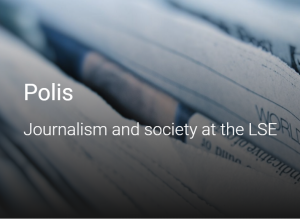The Media Policy Project (MPP) began in January 2011 as an initiative of the Department of Media and Communications at LSE. Founded by Dr. Damian Tambini, the goal of the MPP was to start conversations between policy makers, civil society actors, and media professionals about the latest media research, and to provide timely access for policymakers to relevant research, and to the range of views held by civil society. The project has published numerous blogs, policy briefs and topic guides, and run both public lectures and expert consultation workshops on a broad range of media policy issues, including copyright, algorithmic accountability, telecoms and media regulation.
At present, the focus of the Media Policy Project’s work is the Truth, Trust and Technology Commission (T3) which is being run by the Media Policy Project team and others (including from Polis) based in the Department of Media and Communications. The Director of the Commission, and now of the Media Policy Project, is Professor Charlie Beckett. Although MPP is continuing to publish blogposts on a range of media policy issues, most of our work for the academic year 2017-18 will focus on the four key themes being addressed by the Truth, Trust and Technology Commission: journalism credibility; platform responsibility; online political communications; and media literacy and citizenship. Please bear this in mind if you intend to contact us to pitch a blog. Please see our Editorial Policy page for more information about blog submissions.
The Research Officer is Emma Goodman, who also edits this blog and works for the Truth, Trust and Technology Commission. The project is supported by LSE students, for whose work we are very grateful.
The Media Policy Project and the Truth, Trust and Technology Commission are funded by the LSE Knowledge Exchange and Impact Fund. This fund combines the Higher Education Innovation Fund (HEIF) and Impact Acceleration Account (IAA) allocations received by LSE. The Project gratefully acknowledges the support of the Open Society Foundation.




